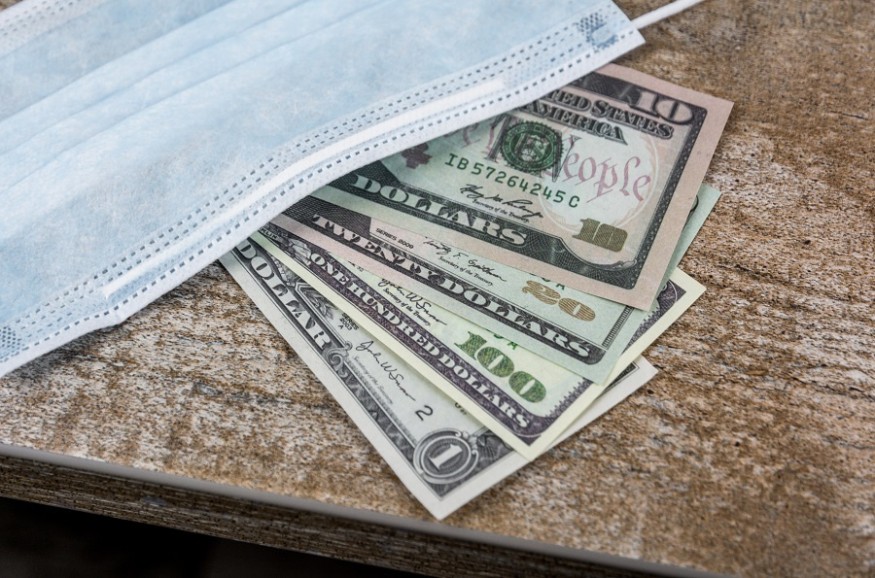Republicans' "Skinny" Relief Bill Failed: What are the Alternative Possibilities to Happen Next?
As the Republican-backed "Skinny" COVID-19 relief bill failed to pass in the Senate, most of us are thinking about the next step and the areas of agreement to make an economic stimulus bill to help Americans.
The White House and Democratic negotiators need to retrace their steps to craft another bill to ease the eligible beneficiaries' burden. On Friday, the top White House economic advisor Larry Kudlow said, "We compromised last winter. We should be able to do it again."
At the same time, House Speaker Nancy Pelosi said that the lawmakers must strive to find common ground. "I'm optimistic. I do think we should have an agreement. That's what we all want."
GOP leadership is guarded with Congress producing a new bill before the November election, while the House of Representatives returns to work, as per CNET. Mitch McConnell, Senate Majority Leader, said Friday he could not predict if they will get together in the last two months prior the election. McConnell hopes that he could tell if the lawmakers would get another stimulus package, "but it doesn't look that good right now."

Amid the failures to agree with the proposals, at least five possibilities could happen, depending on what will happen on Capitol Hill:
1. Smaller bills could pass instead
The House presented one of the piecemeal bills seeking funding to the US Postal Service (USPS) ahead of the general election, which will likely be voting through the mail. On September 6, Treasury Secretary Steven Mnuchin said in support of the GOP skinny bill, "Let's do a more targeted bill now. If we need to do more in 30 days, we will continue to do more."
2. Executive acts could arise instead of a bill
On August 7, President Donald Trump took unilateral action after the talks initially collapsed. Trump signed three memoranda and one executive order on August 8. That's why there may be more executive actions coming.
Trump said during a news conference on September 4 that the administration might consider another executive action to release the unspent $300 billion in stimulus aid for Americans if Congress does not vote to redirect those unused funds. Trump's current coronavirus relief executive actions target extending unemployment benefits, slowing evictions, and deferring payroll taxes until next year.
3. One comprehensive relief bill could be back on the table
The formal discussion of a comprehensive bill is yet to restart. However, the Senate has returned from recess, and the House of Representatives will go back to work this week after the USPS bill passed during the break.
The total cost of the relief bill is the root of the disagreement. The Democrats have come down from their initial $3 trillion proposals to $2.2 trillion, while the White House has hinted it could go up to $1.5 trillion. The failed Republican proposed bill was estimated at between $650 billion and $300 billion.
The expectation that another stimulus bill will pass before the presidential election fluctuates. On the campaign trail, it is expected that the leadership's COVID-19 response will be the center stage for candidates, increasing the political pressure to pass the second round of stimulus bill or at least formulate another plan.
We could see the timeline for when we could see a relief bill passed when the discussion resumed next week. It draws from the potential of postponing a planned recess or the House's return earlier to pass a bill and from Congressional voting schedules.
4. Relief might be on hold until after the election
Washington's atmosphere could be politically charged to pass economic relief bills as the November election becomes two months away. Lawmakers may want to act after the election.
The response of the leaders to the COVID-19 pandemic plays heavily in the campaign for all candidates. If there will be no deal to reach soon, the relief bill's issue could very well come up during town halls or when debated in the coming weeks.
5. No additional action
According to the Washington Post, unemployment remains intensely high levels, and the housing crisis looms. It could cause the economy to plunge into a deeper recession if no action is taken on relief packages, ndividual bills, or executive orders. As per the economists, the damage already done is starting to reflect the Great Recession of the late 2000s.
Check these out:
Social Security May Shortfall of Money Sooner
New Stimulus Bill Could Fix These Problems If Lawmakers Agree
Subscribe to Latin Post!
Sign up for our free newsletter for the Latest coverage!

















